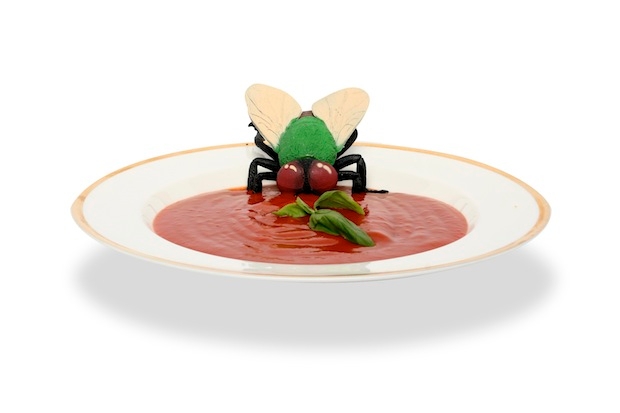‘Sorry, I’d love to go the pub this evening, but I have to go out. It’s my wife’s wedding anniversary.’ This Freudian slip was uttered by one of my colleagues a few years ago. It sprang into mind when I was casually browsing reviews of restaurants and hotels on TripAdvisor.
I always head for the negative reviews first. Not for what they tell you about the venue, but for what they unintendedly reveal about the reviewer. Sarcastic quotation marks and periphrasis are always a bit of a give-away: ‘…there was a floating rubber object in the toilet bowl!!! After complaining at reception we were given another room and a full refund. Staff were very apologetic about the incident.… I asked for additional compensation as we thought that a change of room and a refund was not really adequate. This was refused.’
‘Reasonably-priced food ? Hardly — £6.70 for a cream tea — they are taking the proverbial here. And blackcurrant jam, when it should be strawberry.’
I secretly hope these writers are abducted on their next holiday, to see how they handle real discomfort. ‘Without so much as an excuse-me, my wife and I were manacled to a wall and pistol-whipped by Serbian mercenaries. I would have awarded only one star, but for the Šljivovica, which was delicious, and served properly chilled!!!!’
Some complainants are genuine, of course. You can get terrible service (‘Do you want sugar in your tea?’ ‘No.’ ‘Well don’t stir it then’ was an example from a few years ago). But the most interesting thing about hostile reviews is how often the following phrases occur: ‘anniversary dinner’, ‘Mother’s Day’, ‘aunt’s birthday’, ‘family reunion’, and so forth. It would be interesting to analyse which special occasions generate most bad reviews.









Comments
Join the debate for just £1 a month
Be part of the conversation with other Spectator readers by getting your first three months for £3.
UNLOCK ACCESS Just £1 a monthAlready a subscriber? Log in